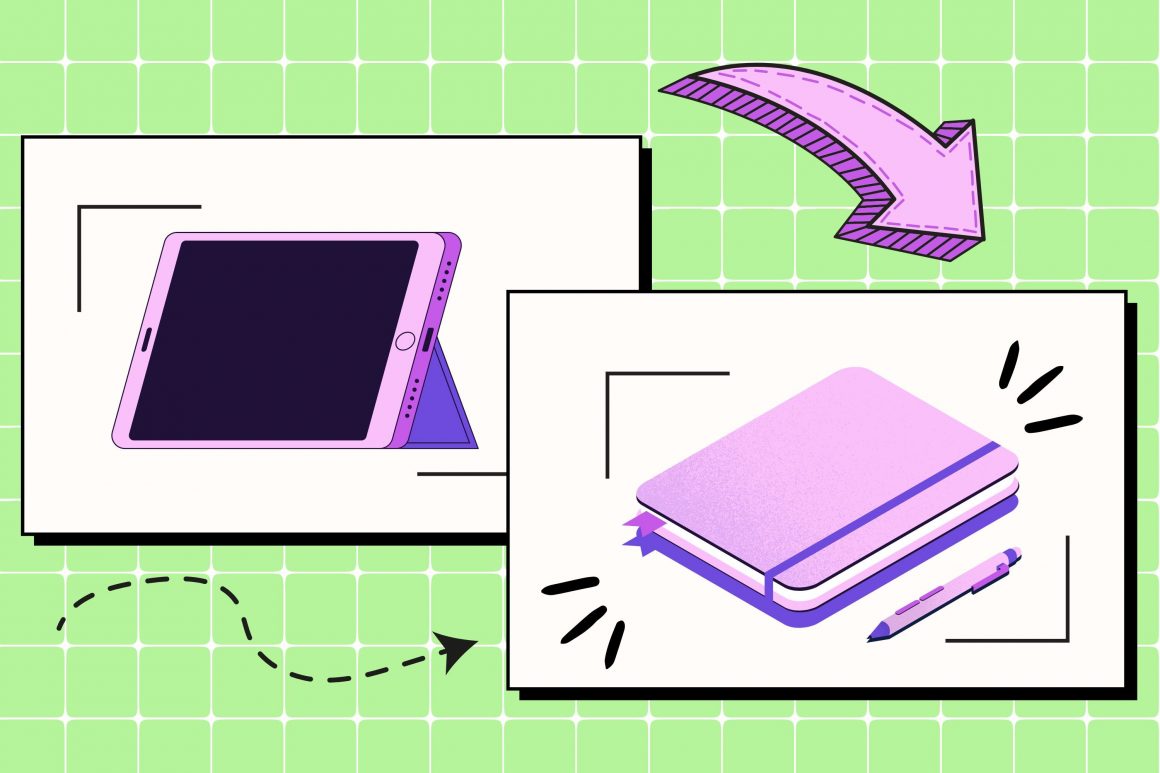
Become a friend of paper and pen
By Nazeefa Ahmed, February 10 2023—
It seems like only yesterday that paper notes in universities and schools were the norm. Personally, I owned countless notebooks with scratchy notes, bleeding highlighters, and coils that would fall out at the slightest tug. My notes have always been messy, and the lack of organization used to bother me at times when I saw the pristine notes of academic YouTube channels. I thought that neat, and well-categorized notes with no mistakes was the sign of an ideal student.
The iPad Air appeared to solve my problems. The device, paired with the Apple Pencil, boasted infinite customization, neat handwriting, and ultimate efficiency for the steep price of $700. Aesthetic unboxing videos on YouTube only increased the temptation to purchase, and I caved. Little had I known that it would become an academic crutch rather than the tool I intended it to be.
In the past few years, iPads have come to dominate university campuses. In almost every corner, there is a student bent on top of a screen scribbling away on a smooth surface with their Apple Pencil. There are countless videos online of students describing increased productivity, organization, and improved grades after purchasing the device.
In reality, however, I stopped taking active notes in class. Professors would often post lecture slides ahead of time, and I would download these only to mimic the projector and change the screen when the professor did. Since all the information was often already written on there, I would have nothing to jot down like I used to.
Checking Reddit, emails, and social media during class became a problem too. Before my iPad, I used to turn off my phone and bury it in my bag, but now my attention was diverted by countless stimuli, making it near impossible to focus.
One may argue that there are easy solutions to this: take notes on blank slides and turn off notifications. But studies show that paper is more effective than handwritten digital notes. A group of Japanese graduate students conducted a study comparing the two groups, and found the paper group wrote 25 per cent faster, and completed associated memory tasks in less time. They stated that the irregularity and object permanence of physical notes allowed for greater brain activity in paper note takers than their tablet counterparts. There is something about the tactile feeling of a real pen on paper that can’t be replicated by a paper-like screen protector. And I missed it dearly.
I can’t deny how convenient an iPad is. Especially as a STEM major, drawing complex mechanisms of chemical reactions and solving equations on digital paper is helpful. But that is only to the extent that I actively engaged with the content. I realized that my iPad would only help me if I learned to help myself.
Some students use their iPad intelligently and do well in school. There are others, like me, who assumed that a flashy device would make the learning process easier and became a passive listener. Big mistake. If you find yourself at this dead end, try using a notebook in class for a day and see how much more you absorb.
I am not going to stop using my iPad. I paid way too much money for it to be unused for the rest of my degree. However, I have rekindled my relationship with paper and pen in class, using the iPad only when necessary, such as searching up facts or sharing documents. For my calculus and linear algebra class, I have returned to a 200-page notebook. It is ugly, with scribbles and torn pages. But, for the first time in a year, I feel as though I am learning again.
